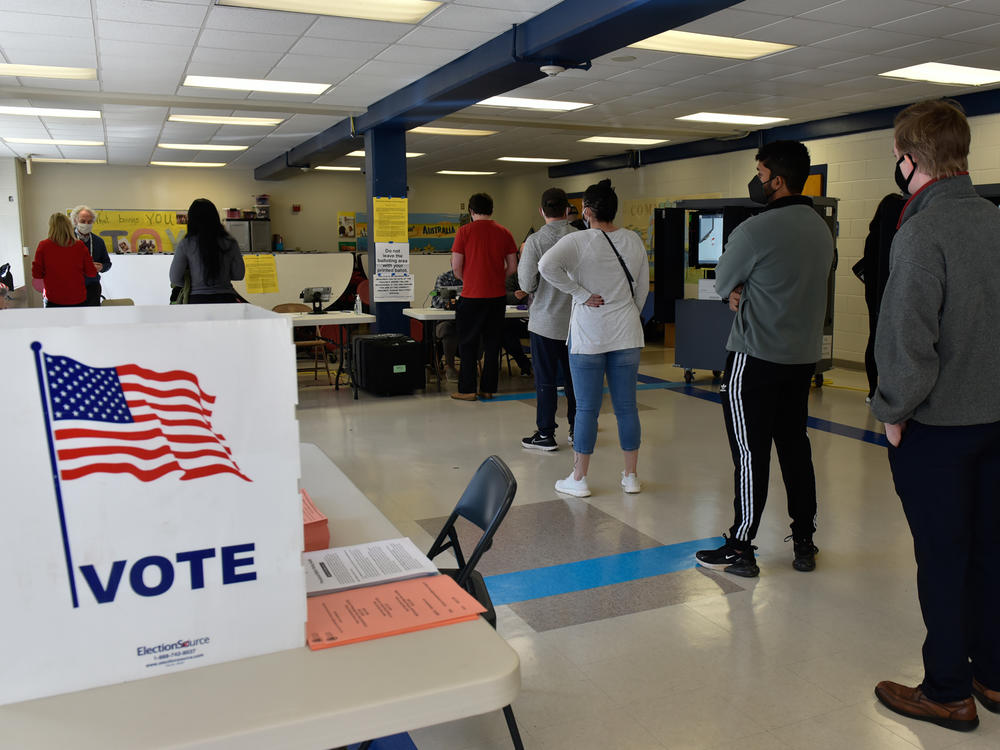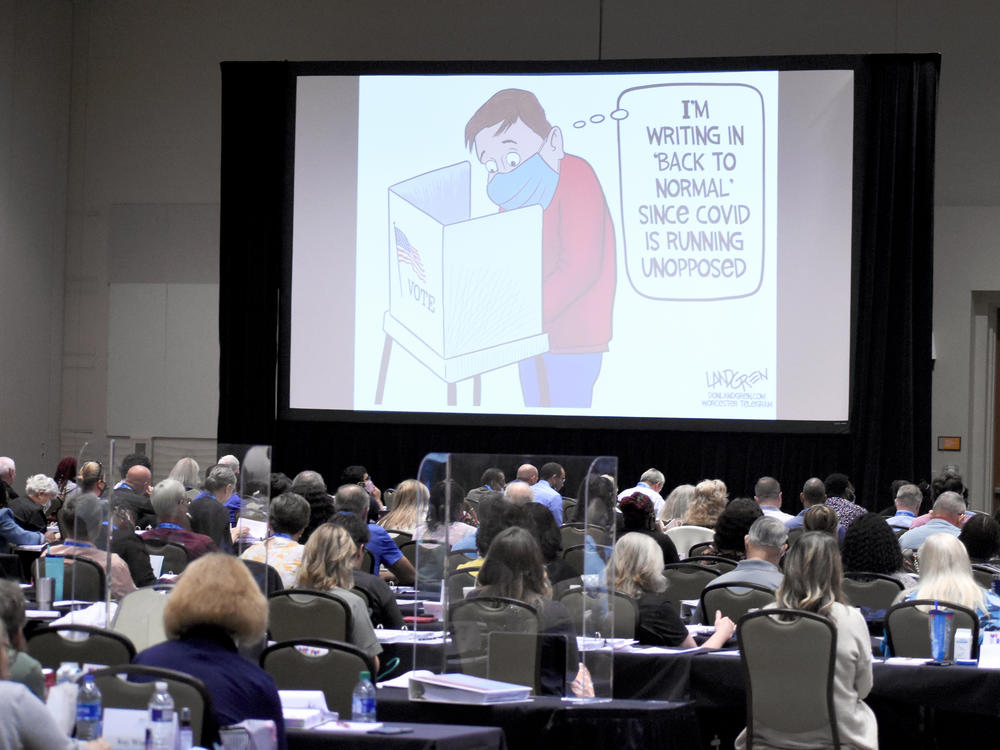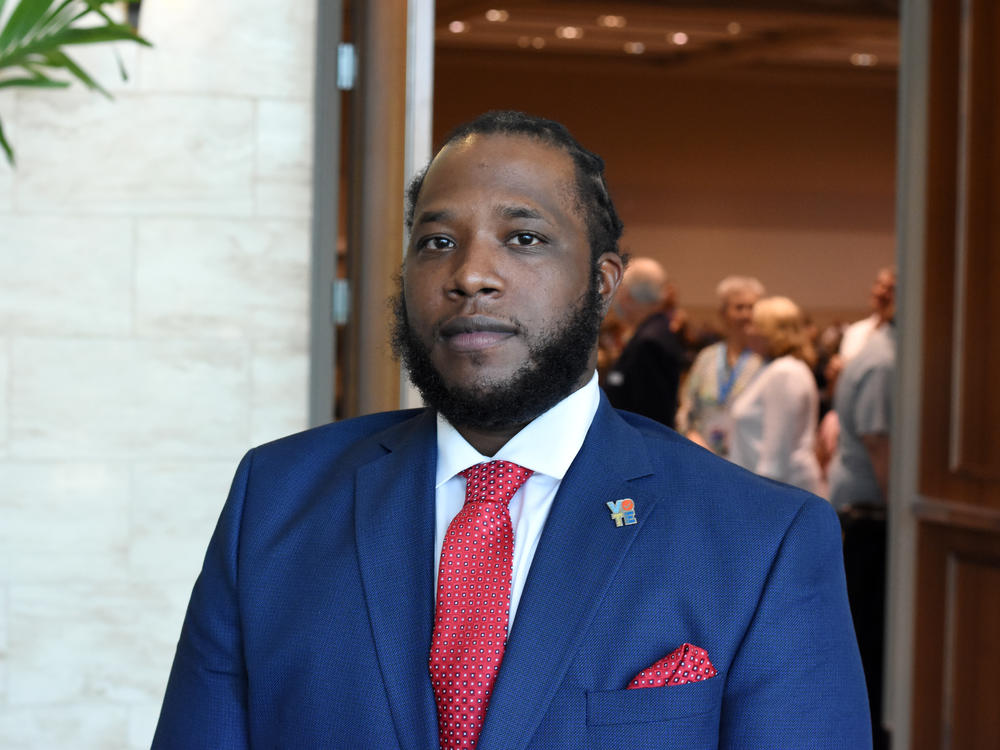Section Branding
Header Content
2020 Was Tough But Georgia Election Officials Say Future Elections Won't Be Easier
Primary Content
When hundreds of local elections officials gathered in a sunny island conference room in Georgia last week, there was a pause for prayer and reflection on a year like no other.
"It's really, really great to see all of you here and all the new faces that we have met," Macon-Bibb County elections supervisor Jeanetta Watson said before letting out a long, deep sigh. "We have really gone through a trial and tribulation."
Beyond the usual sessions on fulfilling records requests, cleaning up voter rolls and other election duties, two major issues loomed over the day-to-day business of the Georgia Association of Voter Registration and Election Officials conference. Athens-Clarke County supervisor Charlotte Sosebee said one of them was the 2020 election cycle.
"Not only did we have the new implementation of our voting equipment, we had high numbers of absentee ballots," she said. "We dealt with the pandemic that we've never dealt with in our years of elections — so we overcame a lot."
Georgia had the largest-ever single rollout of new voting equipment to 159 counties, delayed a spring primary because of the coronavirus and counted more than five million votes three times in the weeks after the November general election. Sosebee said this conference - the first in-person gathering since the 2020 cycle - was a chance for her colleagues to support each other after a difficult year.
Scrutiny, misinformation and threats
Georgia in particular saw intense national scrutiny, viral misinformation and threats against election workers for counting the votes from former President Donald Trump and his allies, including an infamous call to Republican Secretary of State Brad Raffensperger to "find" enough votes to alter the outcome in his favor.
Unease in the elections sphere has been a nationwide problem since last November, with a recent survey finding one in three election officials feels unsafe doing their job. Despite Raffensperger and other Republicans pushing back against false claims of fraud and misconduct, Douglas County supervisor Milton Kidd said state officials aren't doing enough to keep longtime workers from leaving.
"The state of Georgia is at a point of crisis," he said. "The level of institutional knowledge we're losing because of the state, either directly or indirectly, not defending election workers is creating an atmosphere of mistrust - not just around the elections process but around elections workers themselves."
Kidd used his presentation about the absentee voting process to uplift his fellow colleagues and remind them that what they do year round is important.
"Despite the opinions of others, despite the feelings of others - because it needed to be said, all of you are heroes and all of you all are the backbones of our democracy," he said.
New laws and voting rules
The second issue addressed at the elections conference was the impact of a massive 98-page voting law that touches just about every facet of voting. Georgia is one of dozens of states that have altered voting rules in recent months, adding new responsibilities to how local elections officials do their jobs.
In Georgia, that includes tighter deadlines for key election processes like absentee ballot processing and vote counting, more requirements to track lines and the total number of ballots cast - and all under the specter of tougher disciplinary action if something goes sideways. Local boards could even be temporarily suspended if the state finds enough fault under a months-long review process currently underway in Fulton County, the state's most populous.
Ann Russell, elections director of rural Bacon County, said being at the conference was reassuring that she was not alone in trying to navigate all the chaos, and said voters should be reassured as well.
"I just want to want voters to know that they need to be patient with all of us, because right now we're learning about Senate Bill 202, and it's just going to be quite a process," she said. Russell also wants voters to know that she and her peers are leaving this conference energized and determined to help them understand the new law and regain trust in a system that's underappreciated and under attack.
With Georgia expected to be a key state in the 2022 midterms, elections officials will take all the practice they can get - starting with municipal races this fall.
Copyright 2021 Georgia Public Broadcasting. To see more, visit Georgia Public Broadcasting.



